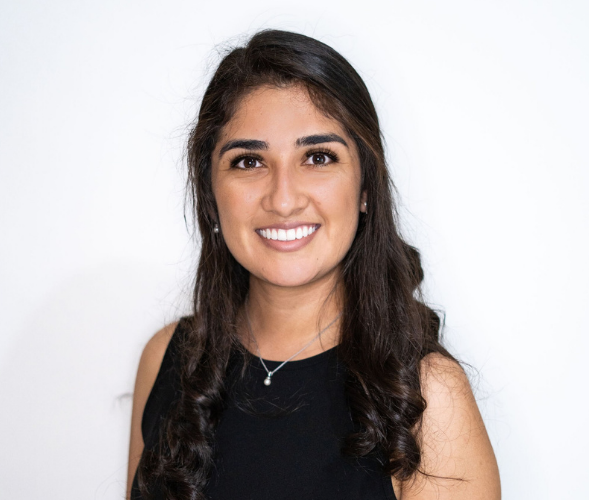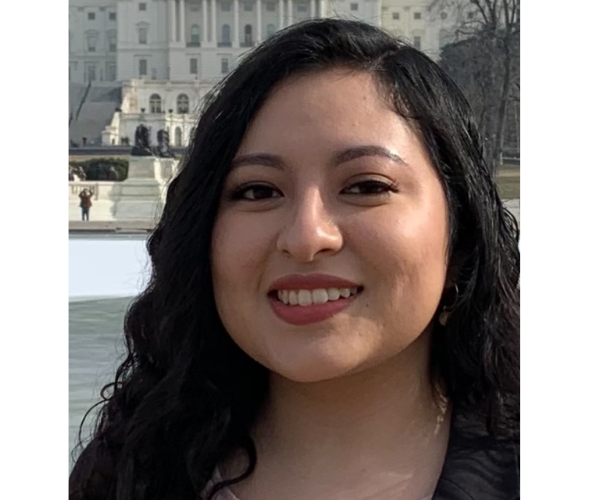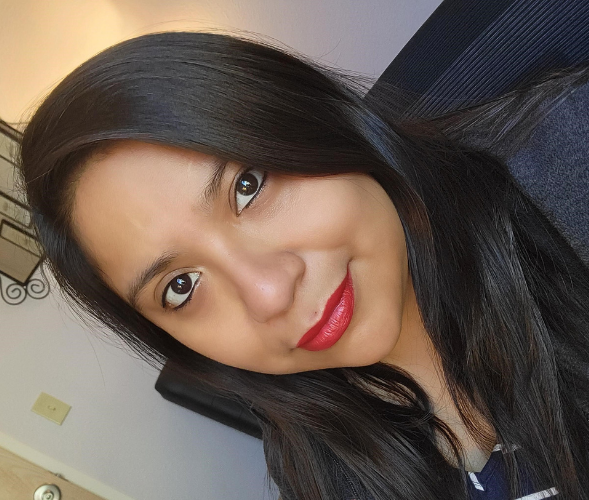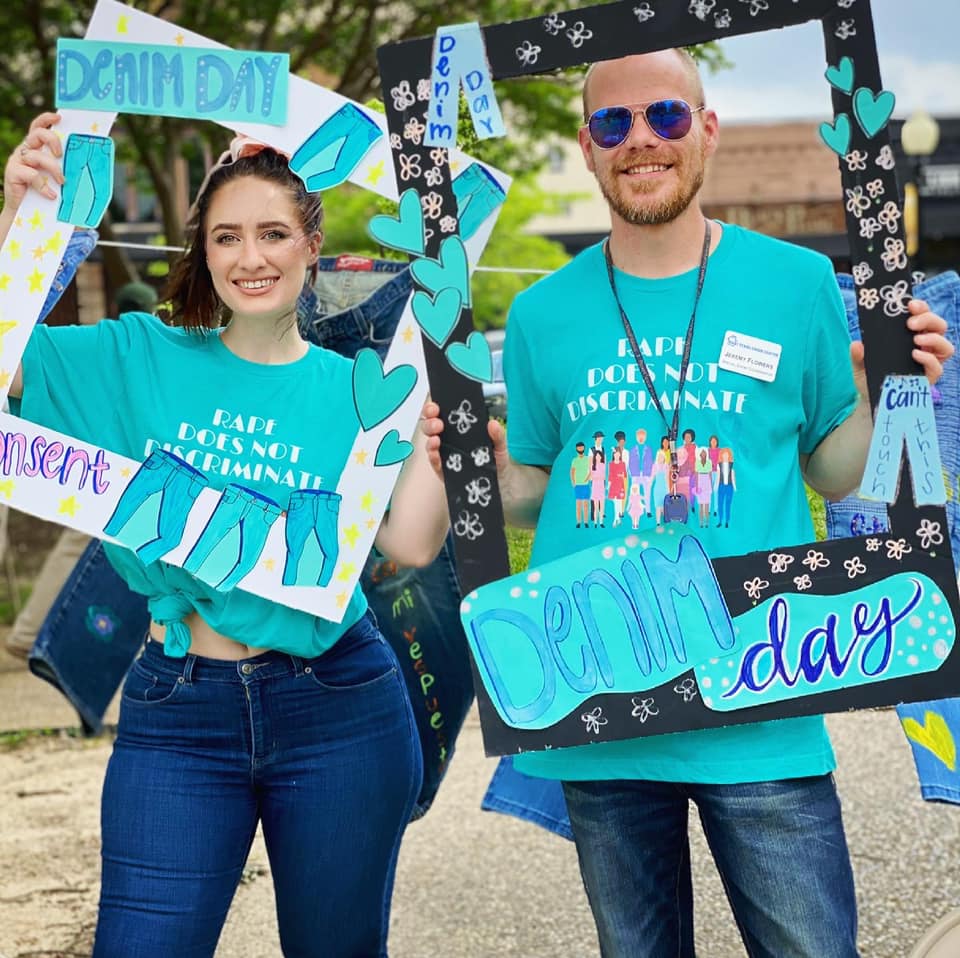The University of Texas at Tyler’s new School of Social Work opened this semester, with hopes to train and retain social workers in East Texas. Boasting nearly 1,000 nonprofit organizations out of Tyler alone, the needs for social workers across the region abound.
In the third and final installment about social work in East Texas, The Tyler Loop focuses on two powerhouse organizations with social work-centered resources and employees: St. Paul Children’s Services and East Texas Crisis Center.
Our first installment focused on UT Tyler’s School of Social Work, and our second featured social work at the Alzheimer’s Alliance of Smith County and Texas Children’s Health Plan.
The Tyler Loop sat down with Ana Serratos, behavioral health therapist and Licensed Master Social Worker and Vanessa Oliveros, Licensed Master Social Worker at St. Paul Children’s Services; and Anai Cornelio Sanchez, victim advocate at East Texas Crisis Center.
St. Paul Children’s Services


St. Paul Children’s Services began its community outreach in the early 1990s. Among its first initiatives was “Wonderful Wednesday,” an after school program for children organized by St. Paul United Methodist Church.
In the following years, St. Paul has extended its services to include a food pantry, immunization clinic, medical clinic, wellness center and dental clinic. Its latest addition in 2021 is a children’s eye clinic.
Oliveros said the majority of people St. Paul serves are low income families, Spanish speaking parents and English and Spanish speaking children. The majority of Oliveros’ clients come to St. Paul for healthcare and food services. “A lot of our clients come from this area specifically, from this neighborhood,” she said.
While St. Paul provides sliding scale healthcare for children, adults often come seeking services, too. “I’m mainly seeing undocumented individuals, so their children were born here, but the parents don’t have any services. Constantly, I’m being asked if there is anything I can do,” said Oliveros.
St. Paul specializes in pediatrics, but enjoys community collaboration with groups like Bethesda Clinic, which specializes in adults. “If we were to have someone who was undocumented or maybe didn’t have any insurance, we would make that referral to Bethesda clinic,” said Serratos.
Oliveros said St. Paul has formed a new community advisory board to evaluate St. Paul’s services and create better ones. Some community advisory board members don’t have access to healthcare.
“Many of them have been to the emergency room and have huge bills because they wait until the very last minute to get services. I think about all the challenges that come with living undocumented that can go on for years, where you never have proper health care,” said Oliveros.
Oliveros, whose social work training most recently took place in Houston, said she is impressed by how the Tyler Hispanic community helps each other. Many of her clients connect with St. Paul’s through word of mouth referrals. “I’ve noticed here it’s more of a close bond, a tie with Hispanic community,” she said.

By contrast, close-knit Latino population can also become a barrier to receiving help, said Serratos. “There’s still this very solid stigma regarding mental health.
“‘We don’t need that’ or ‘What are people going to say about me?’ ‘If they see me going to the therapist office or taking my child to a therapist, they’re going to say that I’m not raising my child the right way.’ It’s all about how they are going to be perceived by the community,” said Serratos.
Oliveros and Serratos want more people to know what St. Paul offers, from dental care to the wellness center to the food pantry. They hope to get the word out about the eye clinic. “A lot of people don’t know about the eye clinic. The intention is that kids will be able to get their eye exams,” said Oliveros. After the exam, St. Paul can connect them with low cost glasses or contacts.
As a behavioral health therapist, Serratos will provide therapy to children and adolescents. Additionally, she supports the clinic to encourage an integrated interdisciplinary model among St. Paul’s multiple programs. “We want to make sure that no one is falling through the cracks,” she said.

Serratos is also part of the social work advisory committee for UT Tyler’s School of Social Work and anticipates students receiving field placements and supervision at St. Paul. “In the future, I would be able to provide that for them, since I’ve been in the field and able to give them hands-on tools of what works,” she said.
“Vanessa [Oliveros], as someone who has been doing this for quite some time, can really teach the new generation of social workers about the resources and everything she’s learned.,” said Serratos.
Serratos is particularly proud of St. Paul’s model of care and low costs. “The beauty of St. Paul’s… is really looking at the patient. How is their health? Their mental health? How is their dental health? How is their eyesight? Are those external factors being addressed? Do they have clothes? Do they have food?

“So we’re looking at the patient in their entirety. We have all of these different areas that we can make sure we are supporting you. I don’t think you can find any other organization that provides all of the services that St. Paul does. St. Paul’s will never turn anybody away. The [sliding scale] cost is very low compared to any other organization that you’ll find in town.
“Dr. [Valerie] Smith and Dr. [Danny] Price, they’re both huge advocates for mental health, and they understand the social determinants of health,” said Serratos.

ophthalmic technician Art Zambrano helping put together St. Paul’s play therapy room. 📷 courtesy St. Paul’s Children’s Services
As for the kind of care St. Paul provides as a faith-based organization, Serratos said the core values of social work are foundational. “Yes, it is a faith based organization, but it goes back to our code of ethics. We are here to serve all and if you’re not serving all, then we need to go back to your code of ethics,” said Serratos.
East Texas Crisis Center

Incorporated in 1978 as the Smith County Citizens Against Rape, the East Texas Crisis Center provides safety, shelter and education to victims of family violence, sexual assault, dating violence and other violent crime.
The crisis center serves Tyler and Smith County and four outreach counties: Henderson, Van Zandt, Wood and Rains. All of East Texas Crisis Center’s programs reach underserved populations and racial and Spanish speaking minorities.
Cornelio Sanchez uses her social work background to inform her role as a bilingual victim advocate.
She said there is a misconception about who the crisis center serves. “What a lot of people don’t really associate with us is that we do help male and female victims of domestic violence and sexual assault.
“Automatically, they assume it’s just for females. But we do help both genders, because they both suffer from [domestic violence, sexual assault or any violent crime],” she said.
Cornelio Sanchez said the crisis center serves victims, whether their incidences are past or current. Secondary trauma victims, such as parents whose children suffered sexual assault or children who witnessed domestic assault, may also receive services.

Cornelio Sanchez works to help clients understand the large umbrella of domestic violence, which includes financial, sexual, economic, verbal and emotional abuse. “Once we educate clients in that, it just starts to click for them. ‘Yes, I am a victim of domestic violence and it’s not just the physical part.’”
Cornelio Sanchez said being a victim advocate includes case management, educating clients and providing resources for community agencies with services. People needing assistance for a protective order can get help with paperwork and the required meetings. “We’re able to facilitate that process for the clients where they don’t feel overwhelmed.
“I feel like they’re basically on their own trying to figure it out. We do a lot of court accompaniment. You never really want to go into a courtroom. To have…someone more familiar with the court system is able to give that client that support they really need,” she said.
Cornelio Sanchez, who speaks Spanish and English, said her Latino and Latina clients have particular concerns.“ Culturally, it’s very patriarchal. It’s always been like that. For me, it’s like an extra motive.
“You don’t have to accept that lifestyle just because it’s a generational thing in your family or in our culture. We can end the cycle,” she said. “It’s very fulfilling just to let them know, ‘Hey, you don’t have to continue this pattern.’”

When clients are equipped with new information, it can lead to empowerment. “They’re able to make their own decisions without questioning themselves,” said Cornelio Sanchez. I always tell them, ‘My goal is to inform you, to educate you, to give you the information so you can make that decision, a decision you made that you’re going to be okay with.’”
Cornelio Sanchez said she reminds clients they’re not doing anything wrong or against their family. “It’s something for the betterment of their families a lot of times,” she said.
For people who are in immediate danger and need help, Corenio Sanchez said they should reach out. The center has a 24/7 hotline: 903-595-5591 or 800-333-0358. Additionally, clients can walk in, schedule an appointment or have chat sessions with advocates.
Reaching out is a first step, but further steps to disentangle from violence may take time. “Become informed of what’s out there, become informed of your rights. And that way, when you’re ready to make that next step, you have all the information you need,” said Cornelio Sanchez.
Among East Texas Crisis Center’s services is trauma-informed counseling in Spanish and English languages. “Obviously that’s a big need in our community. And our counseling is free. All of our services are free,” said Cornelio Sanchez.

The center also provides support groups for survivors of domestic domestic violence and sexual assault, with both shelter residents and non-resident clients.
In the absence of East Texas Crisis Center, Cornelio Sanchez said access to services wouldn’t reach people who need it.
In 2020, the center served 1,075 victims and provided 6,485 direct services to clients. Eighty-seven percent of the crisis center’s clients were female; 12% were male; and 1% were transgender. The center received a total of 2,934 hotline calls and assisted hospitals about domestic violence and sexual assault 116 times.

“We have the network of working with other agencies, whatever the clients’ needs may be. We are the only shelter in the area for victims of domestic violence,” said Cornelio Sanchez.
True to social work’s code to serve all, Cornelio Sanchez said, “We’re here. We don’t care if you’re male, female, transgender. Whatever it is, if you’re a victim of domestic violence, sexual assault or any violent crime, you should be able to receive our services.”
Love what you're seeing in our posts? Help power our local, nonprofit journalism platform — from in-depth reads, to freelance training, to COVID Stories videos, to intimate portraits of East Texans through storytelling.
Our readers have told us they want to better understand this place we all call home, from Tyler's north-south divide to our city's changing demographics. What systemic issues need attention? What are are greatest concerns and hopes? What matters most to Tylerites and East Texans?
Help us create more informed, more connected, more engaged Tyler. Help us continue providing no paywall, free access posts. Become a member today. Your $15/month contribution drives our work.









